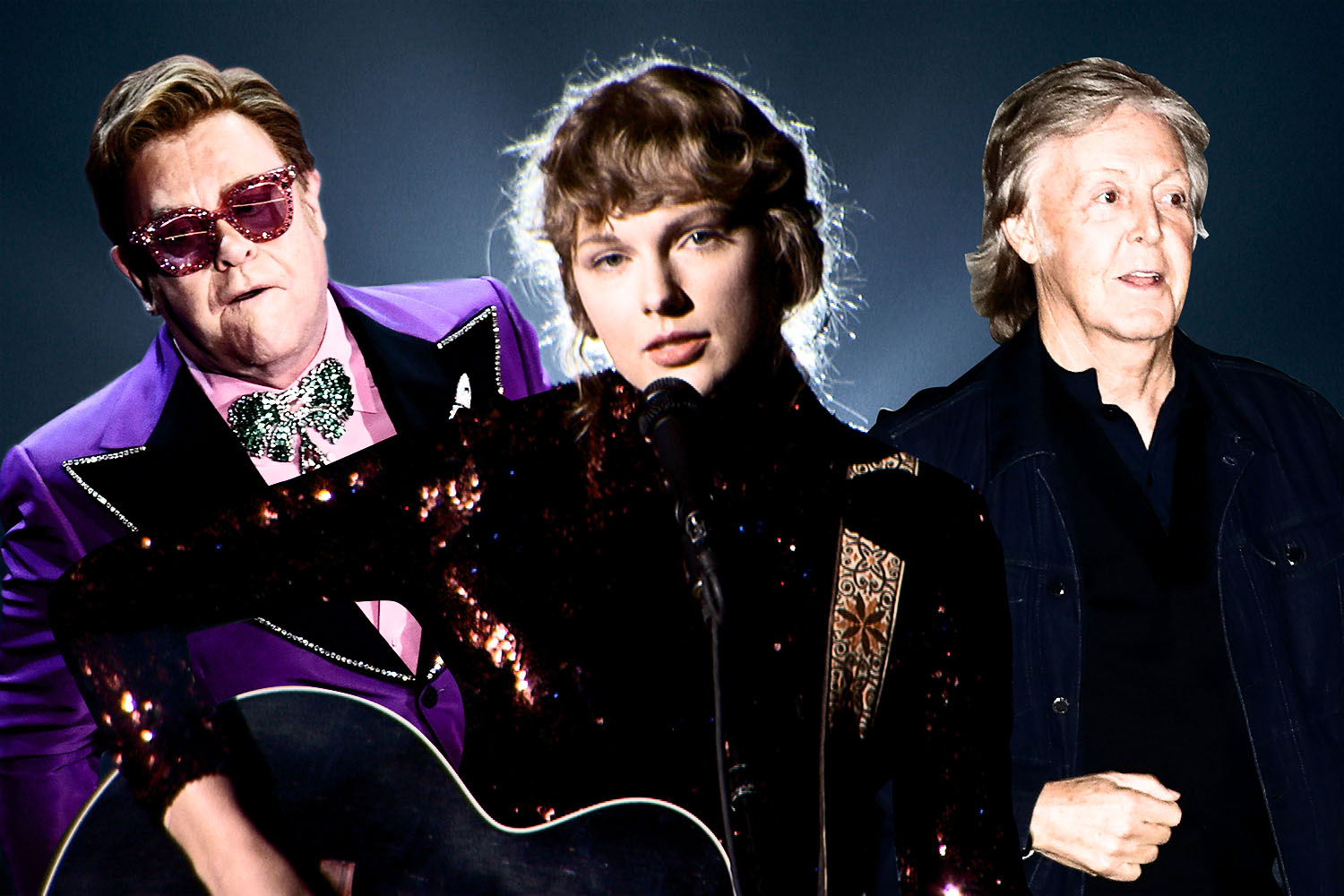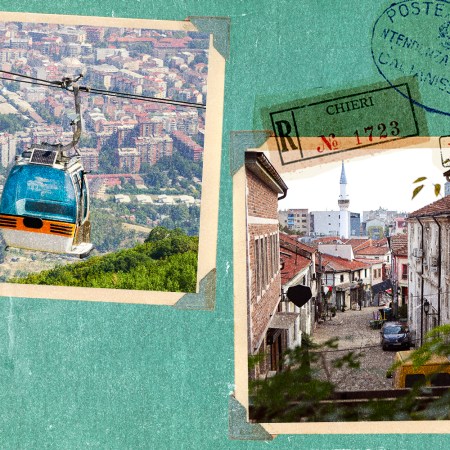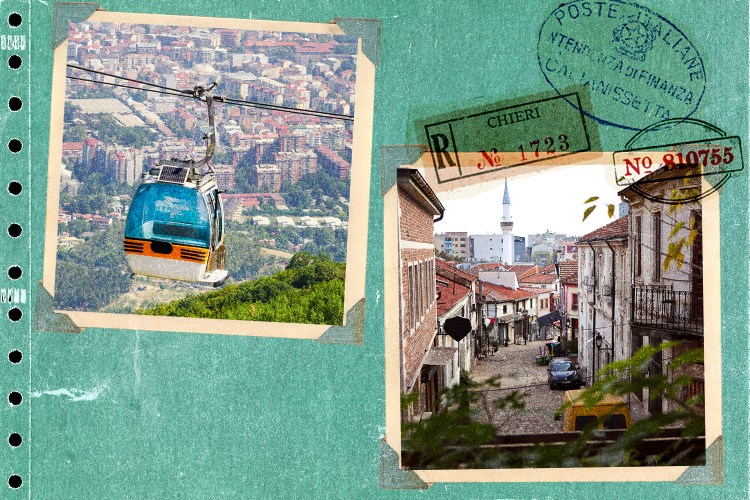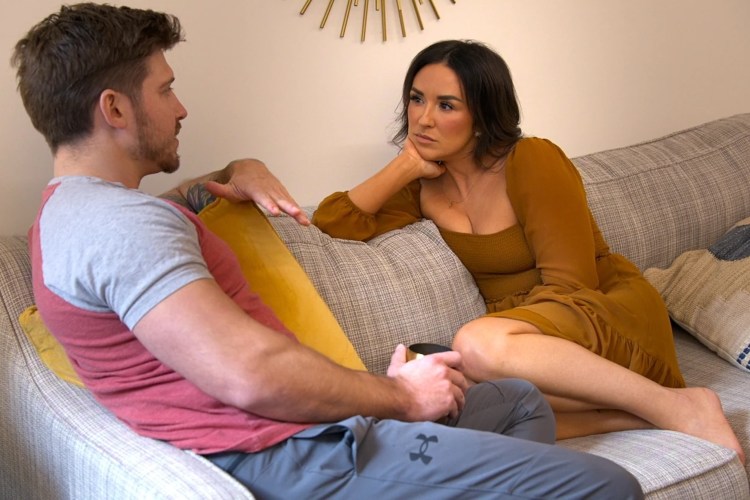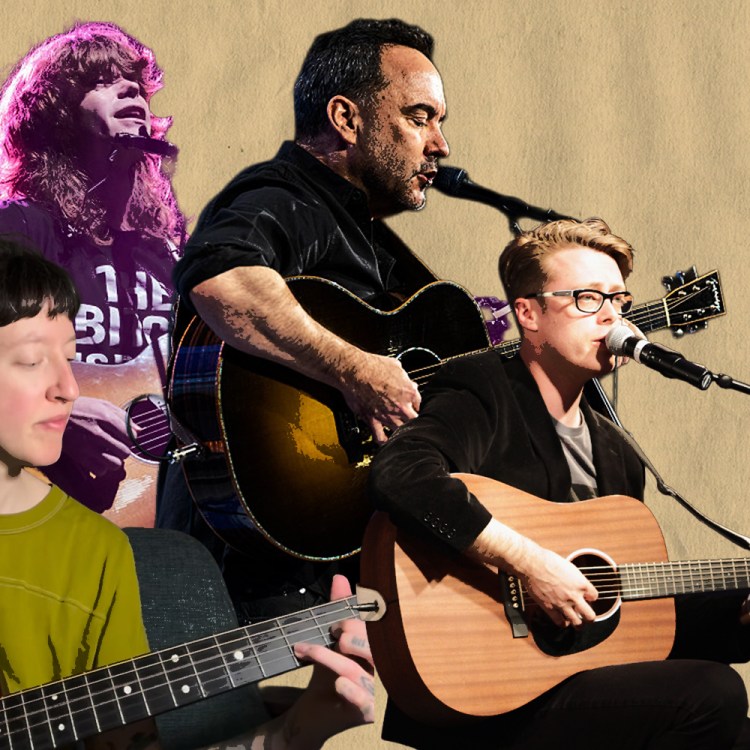Last month Dashboard Confessional’s Chris Carrabba played his first show in almost a year. Filmed at Nashville’s Riverside Revival Church and billed as the band’s “Lonely Hearts and Lovers Valentine’s Day Concert Stream,” the virtual performance served as a kind celebration of patience — not only from Carrabba’s loyal fanbase, but from Carrabba himself.
Had things gone like they were supposed to — before the coronavirus pandemic shuttered venues across the globe — Carrabba would have likely been on the road somewhere, engaged in a closing leg of tour dates meant to observe the 20th anniversary of the band’s breakthrough album, The Places You Have Come to Fear the Most. This victory lap had started well enough last year with the release of a greatest hits collection, The Best Ones of the Best Ones. Supporting shows however, only made it to April. As if having a pervasive and deadly disease disrupt your livelihood wasn’t enough, in June Carrabba was involved in a severe motorcycle accident that left him with both shoulders dislocated and broken, several bruised and broken ribs, and severed muscles in his biceps and deltoids on both sides.
An avid rider, Carrabba was traveling along a backroad outside of Nashville to clear his head one afternoon. “You get into that place where you’re focused on the task at hand and eventually you’re only focused on the task at hand,” says Carrabba of the activity that once gave him an escape. “Maybe you drift off and you think about some things but you’re not thinking about everything, which is a problem I have. My sense of worry will run roughshod over me sometimes.”
As Carrabba retells it, on that particular ride he came upon a spot that had been the site of an accident earlier that day. Remnants of whatever incident took place were still there, which resulted in him hydroplaning on some fluid left on the road. Despite his instinctive efforts to throttle his bike to get distance between himself and the vehicle as the two skidded into a nearby ditch, the motorcycle wound up going up the other side of the ditch, bouncing off a tree and landing on him. His injuries necessitated multiple surgeries, resulting in two plates and 26 screws in his shoulders and muscles that had to be literally sewn back together.
Throughout the latter half of 2020, Carrabba spent his days in recovery, which was not just a physical exercise, but often a mental one as well. “I’d love to say I was just a pillar of positivity the entire time, but I wasn’t,” he admits. “Specifically when I was pretty heavily medicated, there were some dark thoughts that crept through my head. But the lingering ones were when I really worried that I wasn’t ever going to be able to play guitar again. To have lost something that you know is important to you — where it’s not even a wake-up call, where you know this thing is important — obviously, it’s my livelihood, but it’s also my joy in life. I mean, it sounds trite, but it’s the method by which I express myself and connect with the world on a lot of levels. So to have lost it was bleak and maybe even lonely. It was definitely scary. But I was pretty determined and didn’t wallow in that place for very long. It’s taken — and is taking — a lot of work, but it’s worth it.”
At first setting small achievable goals for himself — something as simple as strumming for a whole minute or manipulating his hand to form a chord — Carrabba had to legitimately relearn how to play his guitar, taking lessons from friends. “Just the fact that I had to be accountable to somebody made me commit,” he says. “Whereas on my own I might have lost that mental battle and said, ‘Well I’m not there yet. I’ll wait.’ There were still moments where it just didn’t work, but it was like, ‘Well, I’m trying.’ And that felt really good.”
Spending the first half of last year celebrating his past only to spend the next half of it willing his future back into existence, Carrabba accomplished something that very few veteran artists are able to attain: a natural reconciliation of where he has been and where he wants to go.
“It’s OK to hold your past close to you and hold your future close to you,” he says. “They’re not competing points of view. They’re kind of an intermingled experience.”
As if the universe were looking to further drive home this forward-facing rearview-mirror perspective, this week marks two decades since Carrabba’s band released Places, a record that became a cornerstone of the early-2000s emo revival and helped usher in a sea change toward raw vulnerability in mainstream pop music. While Carrabba admits that he’s had more successful records, Places is, in his mind, the most important one he’s ever made.
The Places You Have Come to Fear the Most was the follow-up to Dashboard Confessional’s debut LP The Swiss Army Romance. Dashboard itself had started as a side project for Carrabba from his primary role fronting the rock band Further Seems Forever. Away from his band, Carrabba had begun filtering his unfettered vocals and bleeding-heart lyricism through the solitary accompaniment of an open-tuned acoustic guitar.
“There were a number of things that led me down that path,” he says. “One thing was it felt really punk to pick up something unconventional, like an acoustic guitar. It wasn’t a ‘I’m going to fly in the face of convention! Fuck everybody!’ kind of thing. It was just territory I hadn’t explored. But because I come from a punk, rock and hardcore background, and the ethos says the rules are fucked up and stupid, and you should do things with conviction, that seemed to apply.”
Falling in love with the ringing, repeating notes and what he calls “unknown voicings” and “sleight of hand,” Carrabba used this instrumental nakedness to generate an inescapable contrast to the songs’ other compositional elements.
“The incisive nature of [the record’s] subject matter is anything but minimalistic,” he says. “The ground I’m exploring, the minutiae of experience, my willingness to kind of pick apart the smallest moments and draw them out into what those things feel like when you’re feeling something heavily, I think that was where I connected as a lyricist. I really got lucky that I found the smallest parts of the bigger moments fruitful as a writer and worth unpacking. While I’m not aligning myself to them, it’s what I respond to when I hear The Cure or R.E.M. or Built to Spill, when they locked into a passing moment and draw it out into this grand experience. That’s what life feels like to me.”
Throughout the album’s 10 tracks, Carrabba traces the lost promise and unsalvageable wreckage of a failed relationship. On their own, the words within songs such as “Screaming Infidelities,” where he laments how he’ll sit and hear the saddest songs, sitting alone and wondering how his ex is making out — all the while wishing there was someone new with whom to make out — could come across as overly sentimental or melodramatic. But what elevated this drama to something poignant was Carrabba’s vocal delivery, an untrained, unrestrained physicality that felt authentic to the pain it was responding to.
“I simply have more conviction than I have skill,” he says. “It’d be fantastic to be a good singer in the traditional sense, but I’m not going to wow anybody at karaoke. But I am going to sing with conviction about the things I really feel in me. And in that arrangement — in that naked arrangement — there’s nothing to hide behind. Which I’m glad for, because I might have otherwise.”
While he acknowledges the hard work he put into making the record, to this day Carrabba has little insight as to why Places found the audience it did, propelling his career in the process. He didn’t make those who listened to the album share it with their friends. He certainly didn’t force his audiences to become a congregation of voices capable of screaming back his words louder than he could sing them. Its success and longevity, he says, “is other people’s doing.”
That’s not to say he can’t reflect on the album’s significance from his own point of view. “I can tell you how that record remains important to me,” he says. “It’s instructive. It goes beyond just the songs to it. It encapsulates the intention I have as a writer and the goals I had as a musician. It remains an edict for me, an ethos to kind of guide me along still — that is to say the intention was to explore some feelings deeply and honestly. Capturing the conviction is maybe the most important factor for me as a songwriter, to come up with a melody and musical arrangement that expresses a feeling — to let myself feel that feeling — and express it without fear of judgment from myself or others.”
As our collective holding pattern seems to slowly, ever so slowly, give way to glimpses of some imaginable end to the pandemic, Carrabba is relishing the thought of introducing fans to his next record, an album recorded in the Before Times but ultimately shelved due to the virus. Like so much of his life of late, it’s a work that looks both backward and forward, and it’s the closest the veteran songwriter says he has ever gotten to evoking the spirit of Places.
“I finally found my way back to that same place that I was drawing from when I wrote The Places You Have Come to Fear the Most,” he says. “It took 20 almost to get back to that spot. I thought about this earlier today. I probably had an audience that was really desirous of another one — another Places. And I probably would have had a bigger career if I had delivered on that. But it wasn’t there. Even early on I understood that there was something special about The Places and that it couldn’t really be replicated by force of will. And in accepting that, I understood how rare that moment was.”
This article appeared in an InsideHook newsletter. Sign up for free to get more on travel, wellness, style, drinking, and culture.




